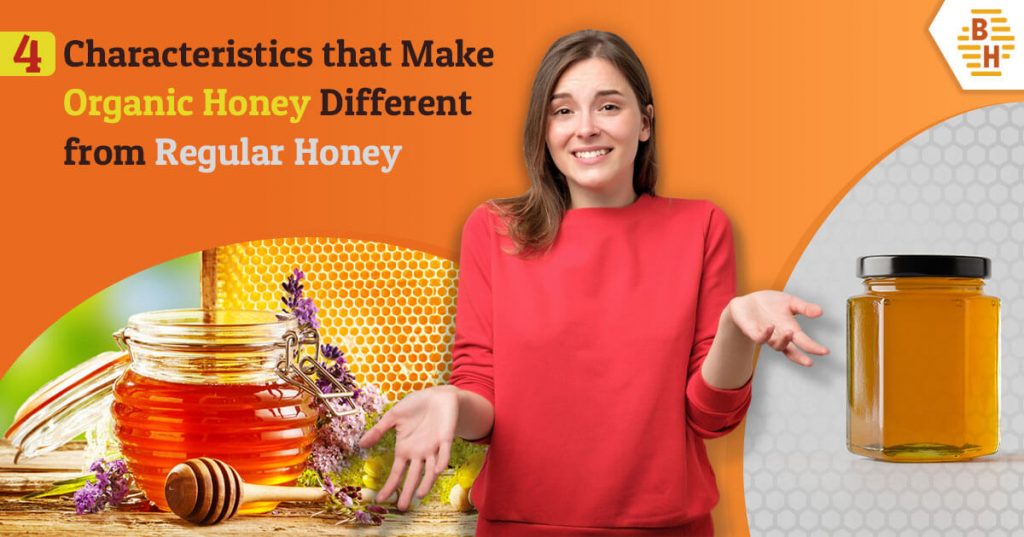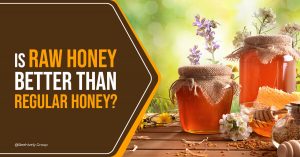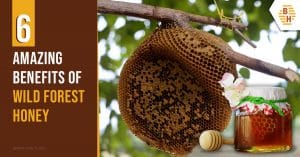The new generation of health-conscious consumers is becoming wary of the adverse effects of pesticides and other contaminants in food. This rising consciousness has increased the number of people demanding organic substitutes for their food across the globe. According to a research by Facts and Factors, the global organic food and beverages market is expected to reach nearly USD 620.00 billion by 2026. To meet the growing demand, farmers have reverted to age-old agricultural methods to grow organic food.
Honey, a food known for its health benefits is also witnessing increased demand for its organic version. However, buying pure honey in today’s market is quite trickier as some companies are propagating their honey as ‘natural’ and ‘raw’ while others are labeling it ‘organic’. This makes it difficult for consumers to choose the right type of honey.
What is organic honey?
Produced from the pollen of organically grown plants, organic honey is free from chemicals used to treat bees or are used minimally. Natural honey mainly guarantees that one does not consume pesticides that are typically sprayed on the plants visited by bees. To ensure that the honey procured is organic, the flowers and plants in the 2-mile radius of the beehive must be organically grown by the beekeeper. Thus, the apiary of the beekeeper or the honey seller must have organic certification.
4 Qualities to Differentiate Organic Honey from Regular Honey
Honey brands claim to sell honey that is naturally procured without any preservatives. Thus, consumers find it difficult to differentiate pure honey from regular honey. Let us look at the 4 differentiating characteristics of organic honey.
1. Organic Certification Stamp from Governing Bodies
The easiest way to differentiate organic or natural honey from other honey is to look for an organic certified stamp on its package that guarantees the honey is chemical-free and does not include any artificial adulterations in the processing. A beekeeper can get organic certification by following strict rules and regulations in his honey extracting process, transportation, processing temperature, and packaging too. Some of the top organic certification bodies from different countries include:
- Food Safety and Standards Authority of India (FSSAI)
- United States Department of Agriculture Organic (USDA)
- Agricultural and Processed Food Products Export Development Authority (APEDA)
- European Union Regulation (EEC)
- Japanese Agricultural Organic Standard (JAS)
2. Chemical-free and Pesticide-free Beehives
Organic honey procured by the beekeeper must be tested and certified by the governing certification authority to assure that the honey does not contain any residues of pesticides or chemicals that can contaminate the environment. This also requires beekeepers to meet rigorous monitoring and testing criteria and make sure that the organic beehives are free of chemical residue.
3. Superior in Taste
Apart from organic honey being a healthier choice, regular consumers of organic honey experience a superior taste over conventional or artificial honey. Organic food consumers are willing to pay the extra amount as they are healthier and tastier choice.
4. Difference in Texture and Color
While differentiating organic honey from regular and adulterated honey it is crucial to consider its texture and color. As compared to conventional honey, organic will be thicker and opaquer. The color will be close to cloudy yellow as the honey is not overheated like processed honey. The heating of organic honey only involves straining and it is not heated beyond pasteurization.
Ditch Regular, Choose Natural and Organic Honey
Choosing honey over sugar to protect one’s health from the ill effects of artificial sweeteners is not enough. Big honey brands claim natural procurement of honey but are crucial to ensure that they deliver the above-listed standards to get the best out of your organic honey.
Honey by BeeHively is sourced from bee farms adhering to organic livestock standards and free of chemicals, antibiotics, or pesticides. These bee farms are situated in strategic areas away from pollution to provide the best environment for the bees. Organic bulk honey delivered by BeeHively is unpasteurized, unprocessed, and filtered to remove any leftover contaminants, residues, bee parts, pollens, etc.
Contributing Writer: Harshita is a Content Writer at Panamax. Inc. MBA in HR & Marketing, she found her calling in Content Writing. In a short span of 2 years, she has explored writing in different styles of content like Coffee table books, website content and for media. In her time of leisure, she finds happiness in binge watching classics & practicing yoga.




